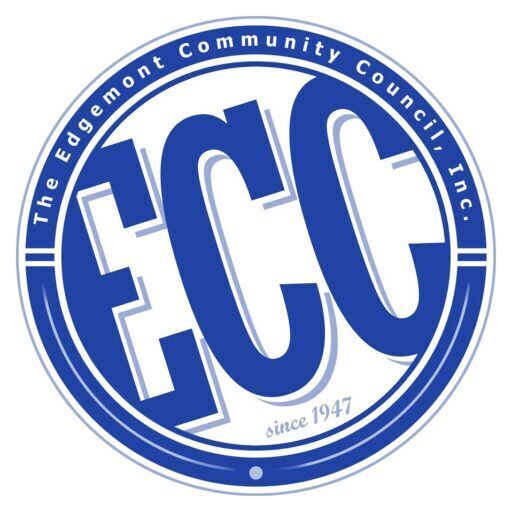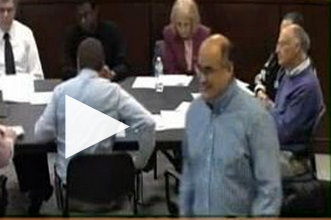The Greenburgh town board today agreed by an informal vote of at least three board members not to send a letter to the state attorney general’s office asking if the proposed legislation to give police the tools to shut down brothels fronting as massage parlors is preempted by state law requiring that massage therapists be licensed.
Supporters of the law, including ECC president Bob Bernstein, who drafted it, said asking for an opinion from the attorney general would be a waste of time because (1) the legislation is not preempted by state law; (2) the attorney general’s opinion would be legally non-binding in any event; and (3) asking for the opinion would needlessly delay enactment of the law, which is similar to laws that have been been on the books in New York towns since 1996 without any legal challenge from anyone.
There is also no guarantee that the town attorney’s office would even notify the town board or the public that a response to such a letter had been received, thus putting off enactment of the legislation indefinitely.
The town attorney believes that towns in New York are not permitted to enact such legislation and was looking to get an opinion from the Attorney General to support his argument that the legislation should not be adopted. The town attorney had previously obtained an opinion from a lawyer for the state’s Association of Towns that the proposed law is unlawful, but the Town refused to disclose the information the town attorney provided to the Association of Towns to obtain that opinion. Nor has the Town disclosed the opinion itself.
The town attorney’s office had decided in February to have the town’s planning board authorize the sending of such a letter to the attorney general, but the attorney general’s office bounced the request on the ground that only town boards have the right to ask the attorney general for such opinions.
The planning board had asked that the town board send its own letter to the Attorney General and today’s action, at a town board work session, seemed to close the door on that happening.
But the town attorney’s office is still apparently working to kill the legislation in other ways.
[wpvideo s3IoOQOd]
The legislation is still pending before the planning board which has put the massage law on its agenda for its meeting on April 15, 2015. Both the planning commissioner and deputy town attorney David Fried today said the planning board might make its recommendation to the town board at that time.
However, Mr. Fried then suggested that the planning board might give a negative recommendation in light of the Town Board’s declining today to request an opinion from the Attorney General. A negative recommendation from the planning board would require a vote of four of the five members of the town board to enact the massage law, and it is unclear at present whether more than three would support it.
And to complicate passage even further, Mr. Fried then raised a brand new argument, warning that the proposed law would impact the rights of more than 600 licensed massage therapists in Westchester County and suggested that, even without writing to the Attorney General, the planning board might reject the legislation unless the town board contacted trade groups representing these licensed massage therapists.
In fact, the proposed law would have no impact whatsoever on licensed massage therapists. The proposed law does not call for the licensing of massage therapists; nor does it require massage therapists to obtain any “special permit.”
The law instead requires that certain businesses that employ licensed massage therapists obtain licenses, which would be obtained based on a background check by police of prior criminal behavior by the business’s owners and managers, and a review of the premises by the building inspector and the fire marshal. Once the licenses are obtained, the businesses would then have to obtain a special permit from the town board to operate.
At today’s work session, the three town board members willing to forego asking the attorney general for the non-binding opinion were Town Supervisor Paul Feiner, and council members Kevin Morgan and Ken Jones, all of whom are running for reelection. Council member Francis Sheehan made clear he favored asking for an opinion, saying it should have been requested weeks ago; council member Diana Juettner did not say whether or not she favored getting the opinion and when Mr. Fried suggested holding off on passing the law until trade groups representing Westchester’s hundreds of licensed massage therapists had been contacted, council member Ken Jones appeared to say he thought that was a good idea.
Mr. Bernstein did not attend the work session, although Mr. Feiner had invited him to come, because the town attorney’s office refused Mr. Feiner’s request to provide him with copies of what it had been advising the town board in private for the past four months since the legislation was proposed. Mr. Bernstein said he needed to see what the town attorney’s office was saying in order to prepare a response to those arguments.
The town attorney’s strategy of now getting the planning board to act will similarly keep Mr. Bernstein from addressing what the town attorney may be telling them because the planning board chair Fran McLaughlin does not permit members of the public to comment on such matters even if, as is the case here, the legislation under discussion was drafted by Mr. Bernstein himself.
The bottom line is that the chances for getting approval of the proposed massage legislation, the absence of which Police Chief Chris McNerney said made Edgemont the “massage parlor capital of Westchester County,” still don’t look very good.

